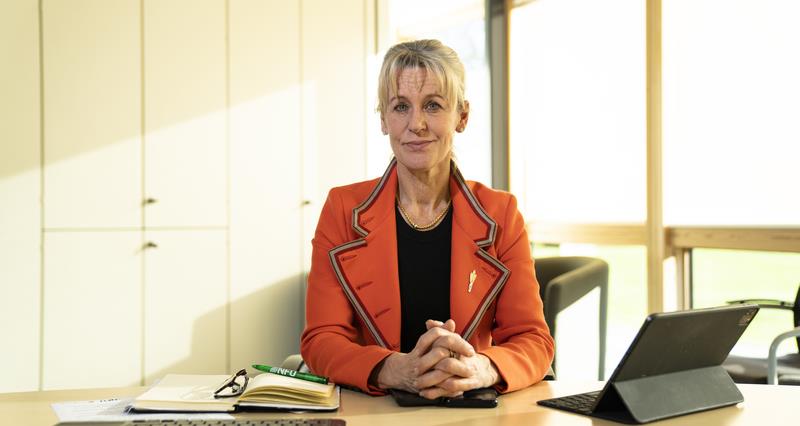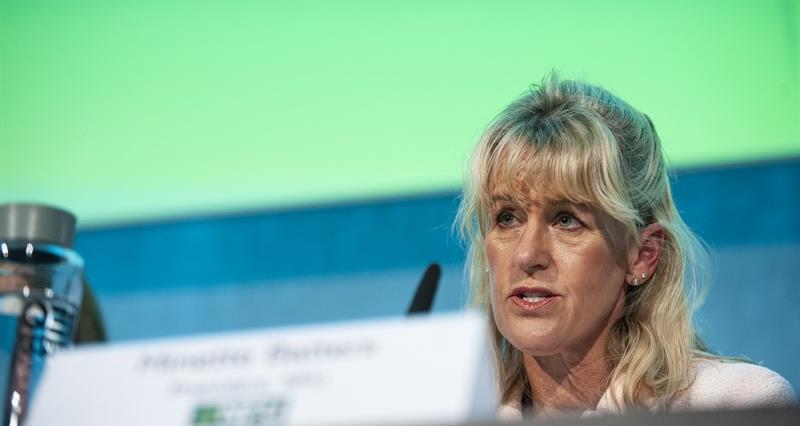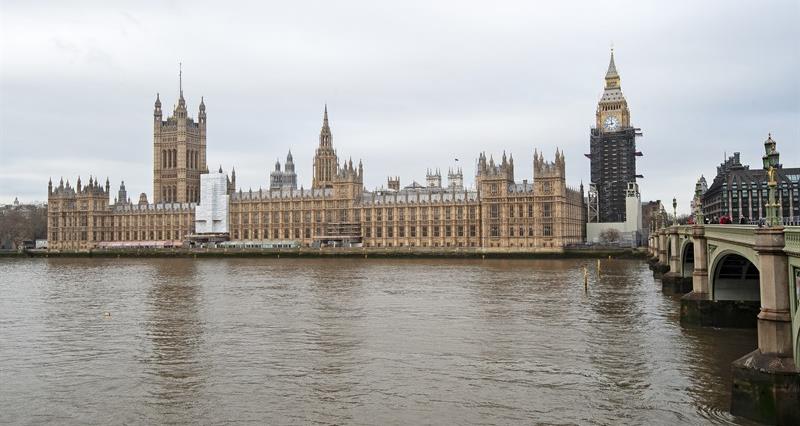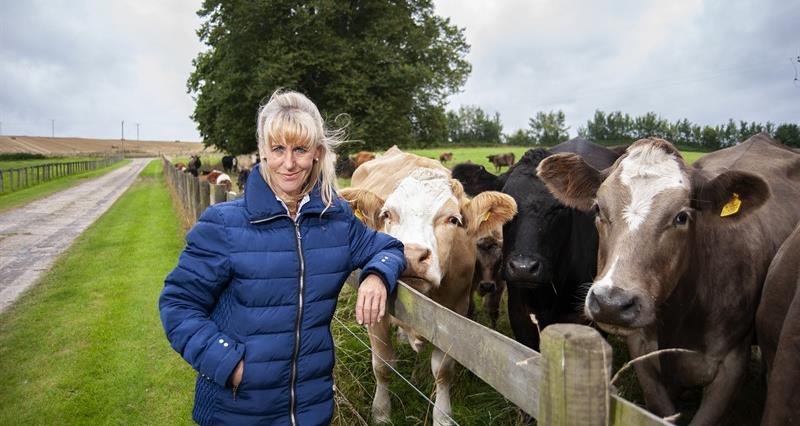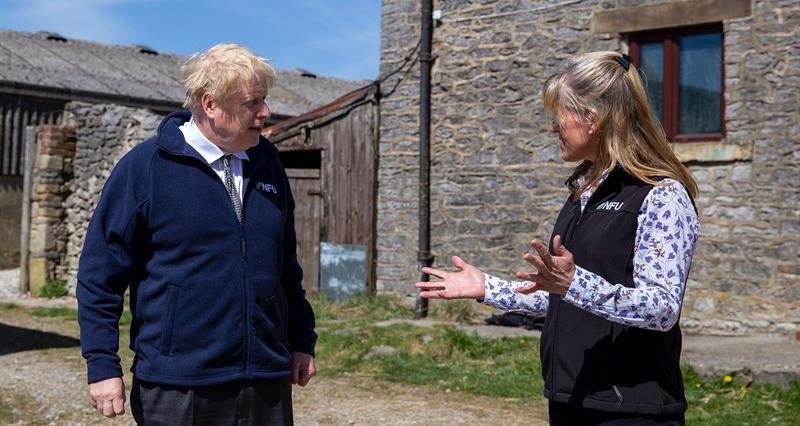Trade with Australia – what it means for British farmers
First published04 May 2023

As the UK finalises the new FTA (free trade agreement) with Australia. We look at how we have supported members and what this means British farmers.
4 May 2023
Trade agreement to come into force at the end of May 2023
Britain's free trade agreements with Australia and New Zealand are set to come into force at the end of May 2023, the government has announced.
13 April 2022
TAC publishes report on Australia trade deal
The TAC (Trade and Agriculture Commission) has published an independent report which looks into whether measures in the UK-Australia FTA are consistent with the maintenance of UK levels of statutory protection in relation to animal and plant health, animal welfare and environmental protections.
As members of the TAC, the NFU has also contributed to the report.
Read the report: GOV.UK | UK-Australia FTA: advice from Trade and Agriculture Commission
In response to the report, NFU President Minette Batters said it “confirms that this FTA simply opens up UK agricultural markets for Australian produce, whether or not produced to the same standards that are legally required of UK farmers.”
9 February 2022
NFU gives evidence at trade committees
The NFU gave evidence this week to the Lords’ International Agreements Committee and EFRA Committee, for their separate inquiries into the UK-Australia trade deal negotiations and agreement.
NFU Director of Trade and Business Strategy Nick von Westenholz shared that the NFU has serious concerns about the agreement.
29 December 2021
NFU looks at the outcomes from the final negotiations
NFU President Minette Batters looks at the outcomes from the final negotiations on the UK's trade deal with Australia, and where we go from here.
She said: “British farmers are being asked to go toe-to-toe with some of the most cost-effective food producers in the world. But there is scant evidence that the government has the vision to create the conditions to allow our farmers to compete.”
21 June 2021
NFU expresses concern on tariff-free access outlined in Australia deal
The NFU is urging the UK government to come forward with a comprehensive strategy to manage the impact of throwing open the UK market to the world’s biggest agricultural exporters and to build an export platform that maximises the opportunities of selling more great British produce abroad.
Speaking on the UK-Australia trade agreement, NFU President Minette Batters said: “The tariff-free access being granted to Australian farmers from the outset is incredibly significant.
“We recognise the advantages of striking independent trade deals and being able to sell our fantastic British produce abroad, but this must be accompanied by a strategy that details how we will improve our trade diplomacy, including boots on the ground focusing on agri-food exports alongside measures to improve the productivity and competitiveness of UK farming.
“The NFU and its members stand ready to work with this government on making trade a success and something that can work for both parties.”
15 June 2021
NFU responds to UK-Australia trade agreement in principle
The government has agreed a trade deal with Australia in principle. It is the first big post-Brexit deal that is not simply rolled over existing agreements.
It is possible that it may have a significant impact on British farming, especially the livestock and sugar sectors and it will, almost certainly, be a model for all future deals.
“We have been clear about our concerns over the potential impact of trade deals that completely eliminate all tariffs on imports from the biggest agricultural exporters in the world.”, said NFU President Minette Batters.
“While details remain very thin on the ground, it appears that the agreement will include important safeguards that attempt to strike a balance between liberalising trade and supporting UK farm businesses, as well as a reasonable time period to allow UK farmers to adjust to the new trading environment.”
Read: 5 questions the UK government must answer on Australia deal
Minette added that she is awaiting to hear further details of the agreement to understand whether any safeguards are sufficient, and whether they can be deployed effectively should imports rise to an unmanageable level.
She said: “I am concerned that today’s announcement appears to have made no mention of animal welfare and environmental standards.
“While the government has previously been keen to highlight how our Free Trade Agreements will uphold our high standards of food production, there has always been a question mark over how this can be achieved while opening up our markets to food produced to different standards.
“We will need to know more about any provisions on animal welfare and the environment to ensure our high standards of production are not undermined by the terms of this deal.
“The ultimate test of this trade deal will be whether it contributes to moving farming across the world onto a more sustainable footing, or whether it instead undermines UK farming and merely exports the environmental and animal welfare impact of the food we eat.
Speaking on the importance of supporting domestic farming, Minette said: “The UK government must step up and work with the industry in improving its competitiveness, through domestic policies that support productivity and sustainable farming, and through export policies that upscale our ability to open and maintain overseas markets, something the UK has been poor at in recent years compared to foreign competitors.”
15 June 2021
Watch again – UK/Australia trade deal: What does it mean for our industry?
More than than 350 members attended our webinar on the UK/Australia trade deal, hearing from NFU President Minette Batters and NFU Director of Business Trade and Strategy Nick von Westenholz.

21 May 2021
NFU statement on UK-Australia trade negotiations
The NFU has issued a statement on UK-Australia trade negotiations after media reports suggested a 15-year transition to a zero-tariff, zero-quota trade deal will be offered.
In the statement, NFU President Minette Batters stressed that a tariff free trade deal with Australia will “jeopardise” the British farming industry, causing the demise of many sheep and beef farms across the UK.
Minette is asking the government for “urgent clarification” on how the trade deal is in line with the UK Government’s own policy on respecting sensitive areas.
She added: “It is more than disappointing to hear this news via the media – if accurate, this will have a massive impact on British farming - and we are still waiting to hear from government.”
19 May 2021
NFU joins calls for government to stand up for farmers in Australia and NZ deals
The NFU has heard a number of claims about the negligible effects that a Australian/UK trade deal will have on farmers, including a claim in a letter to MPs from the Australian High Commissioner that there is “no possibility” of beef or lamb flooding the UK market.
In this case, there should be no objection to quotas forming part of the deal as they clearly believe they will be unable to fill them. We believe that, in order to verify projections of the limited impact of a deal, review clauses should be included.
In the event that the Australian Government’s projections are right, and there is no harm to UK farmers, then any agreed liberalisation can continue. Given the confidence of the Australian’s economic assessment, we presume they will have no problem accepting such review clauses.
We also note that the 15 bilateral or plurilateral FTAs Australia is a signatory to, referred to in the letter, do not involve complete tariff liberalisation and include agricultural safeguards above which tariffs apply. We take this as an indication that such safeguards will be included in an Australia/UK FTA.
The NFU supports the conclusion of an FTA between Australia and the UK, so long as appropriate safeguards are included that balance liberalisation with protecting UK farmers’ livelihoods.
These negotiating principles are:
- Upholding our high standards of production and positioning the UK as a global leader in sustainable farming and in tackling climate change
- Recognising the specific sensitivities of some UK farming sectors, such as beef and sheep, in the current negotiations
- Balancing improved access and lower tariffs for agricultural imports with quotas and other safeguards to avoid irreversible damage to UK farming
- Ensuring any trade deal is genuinely reciprocal and that the benefits properly reflect how valuable UK market access is for foreign exporters
- Acknowledging that these deals will establish precedents that will be reflected in all our trade deals
Following the meeting, NFU President Minette Batters said: “We know that agriculture is almost always the last chapter to be finalised in any trade deal, and as these talks reach an advanced stage its important negotiators take on board the five detailed principles agreed today.
14 October 2020
How is the NFU influencing UK/Australian trade negotiations?
NFU EU exit and international trade adviser Tori Morgan takes a look at the current status with trade talks between the UK and Australia, and how the NFU has been influencing the talks. She writes:
Earlier this year trade negotiations between the UK and Australia kicked off and this month saw the conclusion of the second round of the trade talks.
The statement from the DIT (Department of International Trade) released after the second round says that talks were productive and progress was made towards a comprehensive deal. It reports that both sides have shared draft chapter text or papers outlining their preferred approach and the groundwork has been laid for an initial exchange of tariff offers.
DIT notes that both the UK and Australia are committed to removing trade barriers and intend to use this agreement to send a clear signal to the world, that they want to fight protectionism and advance free and fair trade.
A fair playing field for British farmers
The NFU wants an international trade agenda that supports farmers to expand their businesses and to grow food for Britain and beyond. To do so, the government must take a bold but balanced approach to negotiating with partners like Australia.
This approach must ensure that British farmers are able to continue to produce to the high standards of which they are proud, while allowing them to compete fairly both home and abroad. Australia is a major producer and exporter of agricultural products and as such represents direct competition for UK agriculture.
There are opportunities for the UK to grow our exports to Australia, particularly for dairy products (mostly hard cheeses like cheddar) and pork, provided tariffs are removed and complex non-tariff barriers are dismantled.
However, this opportunity must be balanced against the interests of Australian agriculture who will be aggressive in their asks for access to the UK market for their very competitive beef, sheep, sugar and cereal producers.
We know the Australians are well practised trade negotiators and any market access extracted from UK negotiators, must respect domestic production standards and must respect our most sensitive sectors.
What is the NFU doing?
Throughout these negotiations the NFU has been vocal in its asks and we’ve been meeting with officials and ministers across government.
We have also submitted evidence to select committees in both the House of Commons and the House of Lords to explain directly to MP’s and peer’s our views.
NFU President Minette Batters recently met with the Australian High Commissioner, Rt Hon. George Brandis to discuss our respective positions. Mrs Batters was clear that she expects imports to meet an equivalent standard to those imposed on UK producers.
This was gladly accepted by the High Commissioner who felt that Australian producers could easily meet or exceed the UK demands.
Ask us a question about this page
Once you have submitted your query someone from NFU CallFirst will contact you. If needed, your query will then be passed to the appropriate NFU policy team.
